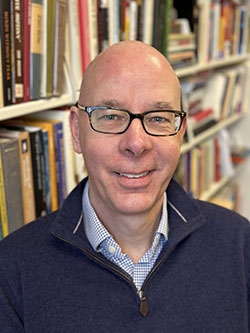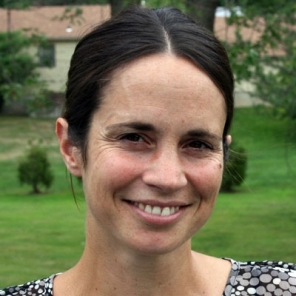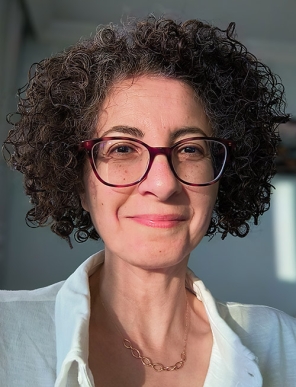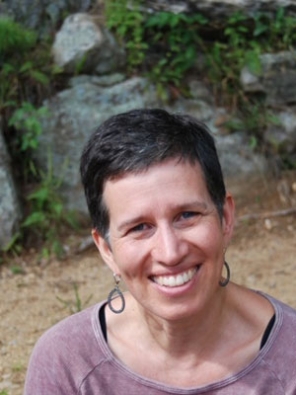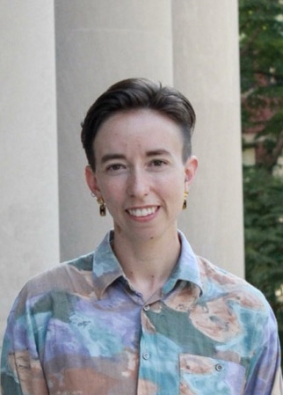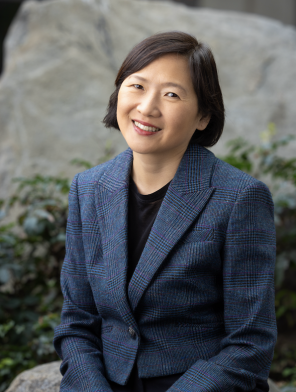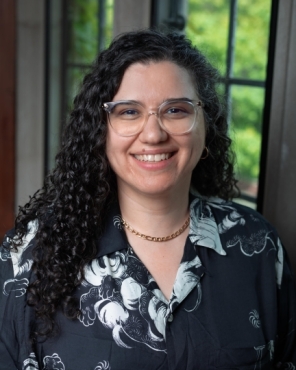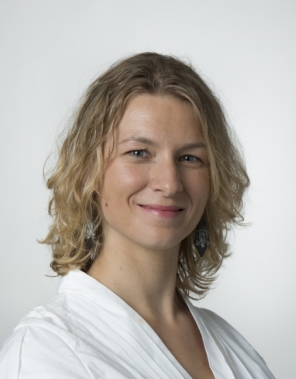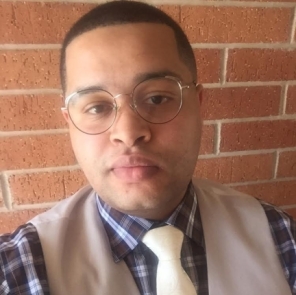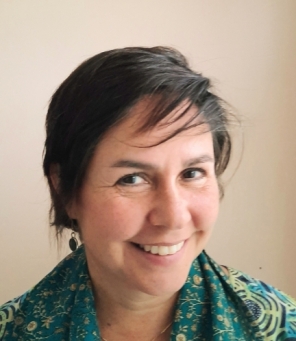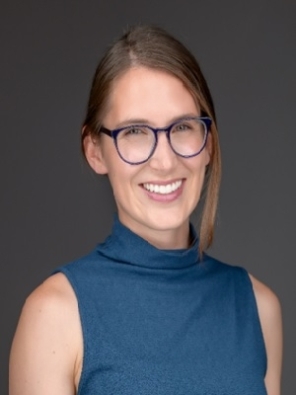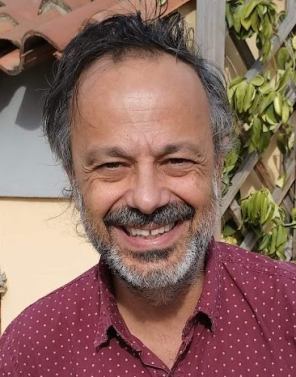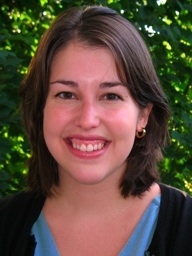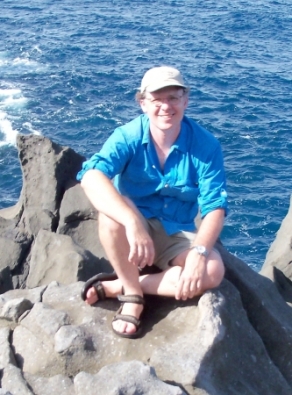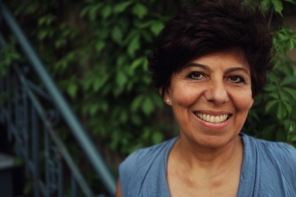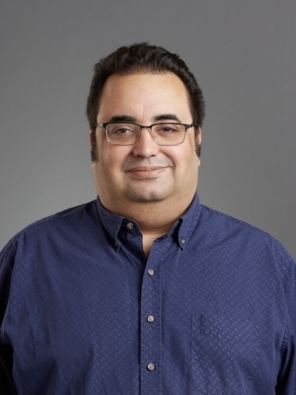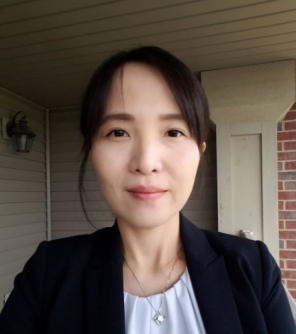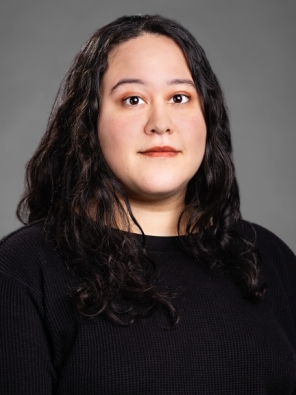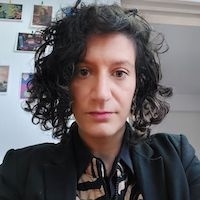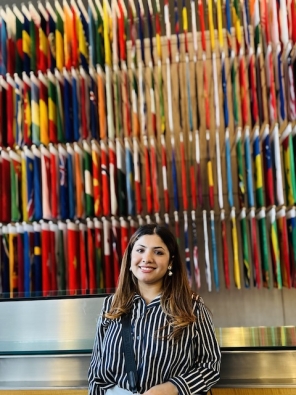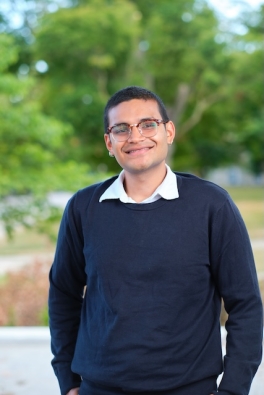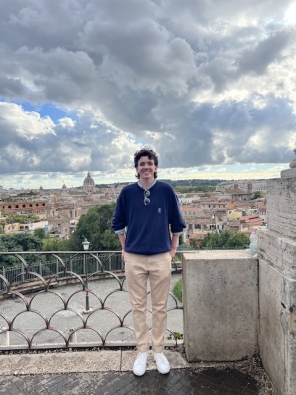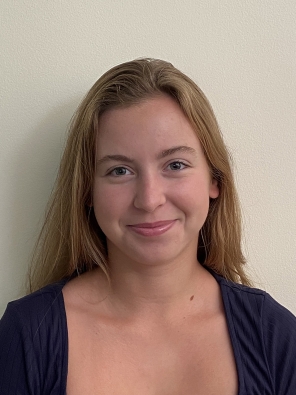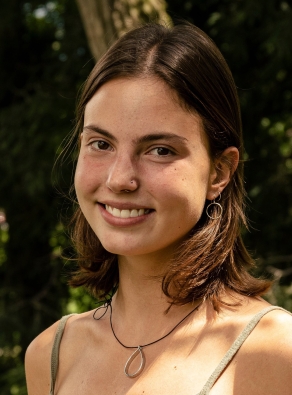About Us - Mellon Affiliates
The following are a list of Middlebury College faculty and staff working on projects funded by Mellon Foundation Humanities for All Times Grant.
Co-Principal Investigators
Ian Barrow
A. Barton Hepburn Professor of History
Spring 2025: Teaching HIST 0440: South Asian Migrations
Mellon Migration Faculty Research Seminar Member
- Email:
- ibarrow@middlebury.edu
Carrie Anderson
Associate Director of the Axinn Center for the Humanities; Assistant Professor of History of Art and Architecture
- Email:
- carriea@middlebury.edu
Febe Armanios
Philip Battell & Sarah Frances Cowles Stewart Professor of History
- Email:
- farmanios@middlebury.edu
Marion Wells
Henry N. Hudson Professor of English and American Literatures
- Email:
- mwells@middlebury.edu
Postdoctoral Fellow
Catey Boyle
Postdoctoral Fellow for the Axinn Center for the Humanities
- Email:
- catherineb@middlebury.edu
Faculty
Rachael Joo
Professor of American Studies
Fall 2025: Teaching Mellon Public Humanities Lab Course AMST0343: Humanitarian Visas in Vermont and Beyond
- Email:
- rjoo@middlebury.edu
- Tel:
- (802) 443-5783
- Office:
- Axinn Center 248
- Office Hours:
- Spring 2026: Thursday 9:45-10:45 am in person; Wednesday 1:00-3:00 pm on zoom, and by appointment
Roberto Lint Sagarena
Director, Center for the Comparative Study of Race and Ethnicity; Director, Anderson Freeman Resource Center; Professor of American Studies
Fall 2025: Teaching Mellon Public Humanities Lab Course AMST0213: Intro to Latina/o Studies
- Email:
- rlintsagarena@middlebury.edu
- Tel:
- (802) 443-5508
- Office:
- Carr Hall 103
- Office Hours:
- Fall 2020: by appointment
Benjamin Graves
Assistant Professor of English
Fall 2025: Teaching Mellon Public Humanities Lab Course FYSE1514: Refugee Stories
- Email:
- benjaming@middlebury.edu
- Tel:
- (802) 443-5884
- Office:
- Axinn Center 302
- Office Hours:
- Fall 2025: Tuesday 2:15-3:45 pm Wednesday 9:30-11:00 am, and by appointment
Sarah Rogers
Vis Assistant Prof of History of Art/Arch
Fall 2025: Teaching Mellon Public Humanities Lab Course HARC0362: Art, Migration, and Museums
- Email:
- sarogers@middlebury.edu
- Tel:
- (802) 443-2237
- Office:
- Mahaney Arts Center 119
- Office Hours:
- Spring Term 2026- Monday 11:00 a.m.-1:30 p.m., Thursday 1:00 p.m. - 2:30 p.m., and by appointment
Dima Ayoub
Associate Professor of Arabic
Fall 2024: Teaching Mellon Public Humanities Lab Course: ARBC 0219 Modern Palestinian Literature
- Email:
- dayoub@middlebury.edu
Natalie Chwalisz
Visiting Instructor in Political Science
Spring 2025: Teaching Mellon Public Humanities Lab Course PSCI 0247: Politics of International Migration
Mellon Migration Faculty Research Seminar Member
- Email:
- nchwalisz@middlebury.edu
Khyree Davis
Assistant Professor of Black Studies
Spring 2025: Teaching Mellon Public Humanities Lab Course BLST 0414: Blacklisted: Surveillance, Race, and Gender
- Email:
- khyreed@middlebury.edu
Gloria Gonzalez Zenteno
Jean Thompson Fulton Professor of Modern Languages and Literature, Luso-Hispanic Studies
Fall 2024: Teaching Mellon Public Humanities Lab Course SPAN 0330 Migrant Oral Narratives
- Email:
- gonzalez@middlebury.edu
Mairead Harris
Lecturer in Chinese
Mellon Migration Faculty Research Seminar Member
- Email:
- maireadh@middlebury.edu
Stefano Mula
Professor of Italian
Mellon Migration Faculty Research Seminar Member
Fall 2024: Teaching Mellon Public Humanities Lab Course FYSE 1005 Migrations: Politics, Ethics, Literature
- Email:
- smula@middlebury.edu
Fulya Pinar
Visiting Assistant Professor of Anthropology
Fall 2024: Teaching Mellon Public Humanities Lab Course ANTH 0274 Global Migration
- Email:
- fpinar@middlebury.edu
Erin Sassin
Associate Professor of History of Art and Architecture
Spring 2025: Teaching Mellon Public Humanities Lab Course HARC 0368: The Rise & Fall of Detroit
- Email:
- esassin@middlebury.edu
Michael Sheridan
Professor of Anthropology
Mellon Migration Faculty Research Seminar Member
- Email:
- msherida@middlebury.edu
Yumna Siddiqi
Associate Professor of English
Spring 2025: Teaching Mellon Public Humanities Lab Course, ENGL 0268 Literature of Displacement
Mellon Migration Faculty Research Seminar Member
- Email:
- ysiddiqi@middlebury.edu
Enrique Garcia
Professor of Luso-Hispanic Studies
Mellon Migration Faculty Research Seminar Member
- Email:
- egarcia@middlebury.edu
- Tel:
- (802) 443-5272
- Office:
- Axinn 202
- Office Hours:
- Monday 10:00-11:00 AM, Wednesday 2:30-3:30 PM, Friday 11:00 AM-12:00 PM, or by appointment on zoom
Eunyung Lim
Assistant Professor of Religion
Mellon Migration Faculty Research Seminar Member
- Email:
- eunyungl@middlebury.edu
- Tel:
- (802) 443-2428
- Office:
- Munroe Hall 202
- Office Hours:
- Spring 2026: On academic leave
Alicia Nunez
Assistant Professor of Luso-Hispanic Studies
Mellon Migration Faculty Research Seminar Member
- Email:
- alician@middlebury.edu
- Office:
- Voter 207
- Office Hours:
- On leave (spring 2026)
Adi Livny
Israel Institute Teaching Fellow
Mellon Migration Faculty Research Seminar Member
- Email:
- alivny@middlebury.edu
- Office:
- Axinn 315
- Office Hours:
- Spring 2026: Monday 3:30-5:00 p.m. and Tuesday 2:00-3:30 p.m.
Students
Lima Abed
My project explores the gendered experiences of Afghan women undertaking irregular land migration from Afghanistan toward Europe and the United States. It examines two primary routes: the Central and Eastern Mediterranean pathway through Iran, Turkey, and Greece, and the Latin American corridor through Brazil and Mexico leading to the U.S. border.
While extensive literature documents irregular migration patterns, few studies focus on women’s voices or on their experiences of land migration and the forms of resistance that shape their journeys. Drawing on qualitative interviews with Afghan women migrants and secondary data from international organizations and other scholarly sources, this project highlights how Afghan women navigate displacement and systems of control.
The project aims to contribute to feminist migration studies by showing how intersectional factors such as gender, nationality, legal status, and poverty produce vulnerability, while also revealing moments of agency and resilience.
- Email:
- labed@middlebury.edu
Yuvraj Shah
Since 1880, British colonial policy, economic migration, and indentured servitude resulted in a large South Asian immigrant community in East Africa. With a peak population of around 180,000 in 1968, the Kenyan Asian diaspora is a global community of migrants who have a generational connection to Kenya, living in and out of the country. For my research, I travelled to Kenya and the UK and interviewed 46 members of this community, asking them the question “what makes you Kenyan.” Using existing scholarly research, my interviews, and literature about this diaspora, I am determining the different ways this diaspora claims nationhood and belonging in Kenya.
- Email:
- yshah@middlebury.edu
Rodaba Husseini
My research examines the lives and narratives of Afghan refugee women living in Burlington, VT, through ethnographic accounts spanning multiple generations. It explores how memory and recollections of life in Afghanistan—whether joyful or traumatic—shape the ways these women experience and find meaning in life in the United States today. By analyzing the socio-cultural processes through which Afghan women refugees construct a sense of place and belonging, I aim to understand what their experiences reveal about the broader social and cultural landscape of Vermont, particularly as it relates to immigrant, migrant, and refugee communities. Ultimately, I approach this project with the goal of understanding Afghan women’s experiences both as individuals and as members of an evolving diasporic community.
- Email:
- rhusseini@middlebury.edu
Hugh Hutchinson
My research for the Mellon Migration Fellowship explores the theology of the contemporary Sanctuary Movement. The Sanctuary Movement began in the early 1980s as a string of religious leaders through Mexico and the U.S. formed a network for safe passage northward for migrants from El Salvador and Guatemala fleeing violent civil wars. As the U.S. government refused to acknowledge their legitimate claims to asylum and sought to convict those assisting them, sanctuary workers’ legal obligations were eclipsed by their Christian, moral ones.
I am investigating the state of Sanctuary theology today, as immigration enforcement agencies have pursued, harassed, and deported migrant populations in the U.S. with unprecedented publicity and aggression. In doing so, I have been seeking out and conducting interviews with pastors who lead Sanctuary churches to gain a deeper understanding of what motivates American Christians to align themselves with migrants at risk of deportation. The founding fathers of the movement adamantly articulated why their moral compass pointed towards Sanctuary, as publicity was a core pillar of their work. They inspired people across the nation and world, regardless of religious affiliation, to declare their places of worship, schools, cities, counties, or even states as Sanctuary spaces. However, circumstances have changed over four decades; civic engagement and church membership have steadily declined, migrant justice issues have become increasingly secularized, and thus it is easy, but mistaken, to overlook the role of American Christians in migrant justice work. It is vital to understand what energizes Christians to be responsive to migrant justice issues under the second Trump administration because the services they provide are unique to religious spaces and are guided by that religiosity.
- Email:
- hfhutchinson@middlebury.edu
Sorina Johnston
IGS Global Migration and Diaspora Studies Major, Spanish Concentration
Liminality and Social Legibility: Poetics of Migration
This project explores the concepts of belonging and the fragmented self that occur in migrant literature, analyzing how poetic devices communicate liminality and defy systemically-imposed one dimensionality.
- Email:
- sjohnston@middlebury.edu
Maya Watson '25
History and Russian Major
My Mellon Grant research will culminate in a senior thesis focused on economic migration and national identity in Soviet Kazakhstan.
- Email:
- mcwatson@middlebury.edu
Sajia Yaqouby '25.5
Art History and Museum Studies Major
“Colors of Home” is a project that explores the role of art in fostering a sense of belonging among the Afghan refugee community in Vermont. By conducting interviews with newly resettled Afghan refugees and Afghan students at Middlebury College, the project highlights a nuanced contrast in their experiences and perspectives despite both groups leaving Afghanistan around the same time. While one group is deeply engaged with various forms of art, the other is less so. Through an analysis of themes such as belonging, identity, and the refugee experience, this paper seeks to uncover how these individuals’ relationships with art shape their sense of home and community in a new environment.
- Email:
- syaqouby@middlebury.edu
Academic Department Coordinator
James Laffin
Academic Department Coordinator
- Email:
- jlaffin@middlebury.edu
- Tel:
- (802) 443-5429
- Office Hours:
- 8:15-4:15 M-F, Remote Thursdays


